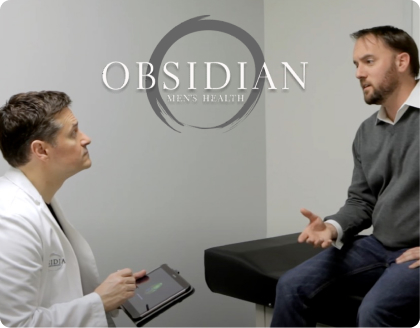 Ask some physicians even once for information about low-testosterone treatment, and they might mention something called “HCG support.” Sounds innocuous — but it’s a concept that can have pernicious effects on men who aren’t familiar with it.
Ask some physicians even once for information about low-testosterone treatment, and they might mention something called “HCG support.” Sounds innocuous — but it’s a concept that can have pernicious effects on men who aren’t familiar with it.
To understand why, it’s first important to reiterate some of the basics about Low T treatment, which consists of restoring a man’s T levels in one of two ways: by increasing his endogenous T production (that is, the hormone the body produces naturally), or by using synthetic testosterone. To raise endogenous levels, you can use either of two drugs: clomiphene or human chorionic gonadotropin (HCG). These signal the body to increase T production, which will work assuming that the production mechanism in the testicles is functional.
There is one, and only one, advantage to using these drugs in place of synthetic testosterone: The synthetic stuff carries a risk of infertility, which clomiphene and HCG don’t. Thus men who are at a place in life where they’re no longer concerned about fertility are generally far better off with synthetic testosterone. Here’s why: Low T that’s caused by certain pituitary disorders that affect production signaling to the testicles can be treated successfully with clomiphene and HCG. But most men with Low T have normal pituitary function, meaning the problem lies within the testicles themselves. For these men, synthetic testosterone is a much better choice — more effective, easier to administer and considerably less expensive.
So what exactly is this “HCG support” I mentioned above? Some physicians prescribe HCG to men who are on synthetic testosterone in order to “support” normal testicular function. The supposed benefits of this combo include the restoration of normal T levels even after therapy ceases; maintenance of normal fertility; and prevention of testicular atrophy. The first two claims have not been proven — and while the third has, it’s important to note that most men on Low T therapy do not develop testicular atrophy, and those who do most often experience a negligible, non-bothersome loss of testicular volume.
By definition, after all, men with testosterone deficiency suffer from a defect in their production machinery — i.e., the testicles. Sending signals to defective organs will accomplish nothing. The notion that HCG will help maintain healthy sperm production in men on synthetic T, meanwhile, isn’t supported by extensive research. It is certainly possible that HCG might help some men maintain normal sperm production while they’re on synthetic T, but its efficacy as a long-term treatment is questionable at best.
Men who wish to preserve their fertility are better served by using clomiphene or HCG by itself. If either fails to restore normal T levels, though, it might be beneficial to implement synthetic testosterone as well, as long as the man is made clearly aware of the fertility risk and unknown long-term effects of this approach.
The bottom line is that the very concept of “HCG support” is promoted primarily by anti-aging clinics staffed by charlatans and hormone-pushing mills in league with unscrupulous quacks. It’s also something of an article of faith among the anabolic-steroids crowd, who get their testosterone either illegally or from a doctor who shouldn’t have a medical license.
For most men who are receiving legitimate Low T therapy and aren’t concerned about their fertility, HCG isn’t necessary. Is your physician prescribing a “cocktail” that includes HCG as part of your low-testosterone treatment? That’s probably a dicey proposition. Take your business — and your body — elsewhere.

